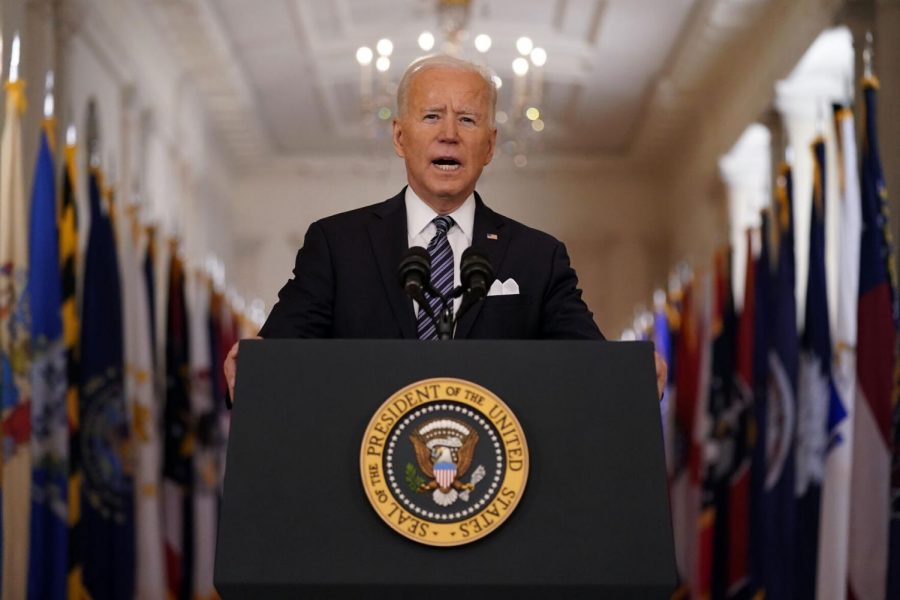White House budget spikes climate change, other spending; GOP blasts defense proposal
April 9, 2021
(The Center Square) – President Joe Biden released top-level numbers for his proposed 2022 budget Friday. The $1.5 trillion plan includes major spending increases for domestic projects while keeping defense spending essentially steady with inflation.
Biden’s budget proposes a 15.9% increase in non-defense discretionary spending, despite growing concerns over rising debt levels.
The budget plan would provide a 1.7% increase for military spending, leaving $753 billion for defense, alarming Congressional Republicans.
A crew of leading Republican senators banded together after the budget’s release with a joint statement opposing Biden’s plan.
Senate Republican Leader Mitch McConnell, R-Ky., Armed Services Committee Ranking Member Jim Inhofe, R-Okla., Senate Budget Committee Ranking Member Lindsey Graham, R-S.C., Sen. Marco Rubio, R-Fla., and Sen. Richard Shelby, R-Ala. all blasted the budget proposal, calling it a “liberal wish list” that neglects national security.
“President Biden recently said, ‘If we don’t get moving, [China] is going to eat our lunch,’” the senators wrote. “Today’s budget proposal signals to China that they should set the table. While President Biden has prioritized spending trillions on liberal wish list priorities here at home, funding for America’s military is neglected.
“China’s defense spending has increased by $200 billion, while America’s has decreased by $400 billion,” they added. “China’s military investments match its desire to out-compete America and hold our military forces at risk.”
Lawmakers have less than six months to pass a budget that Biden is willing to sign. Any budgetary legislation will have to make it through a divided Senate, and Republican senators were quick to attack Biden’s proposal Friday afternoon.
“President Biden’s budget proposal cuts defense spending, sending a terrible signal not only to our adversaries in Beijing and Moscow, but also to our allies and partners,” the Republicans wrote. “Cutting America’s defense budget completely undermines Washington Democrats’ tough talk on China and calls into question the administration’s willingness to confront the Chinese Communist Party.”
Biden also took fire from many on the left, who said his proposed budget still allocated too much to defense.
“Frankly, this is not only disappointing, it’s reckless,” said the left-leaning advocacy group Public Citizen. “Militarization does not keep us safe, investments in human needs do.”
The White House touted other priorities in the bill, including $36.5 billion for high-poverty public schools, $10.7 billion to fight the opioid epidemic, a $14 billion increase for measures to fight climate change, and $2.1 billion to curb gun violence.
Biden’s budget gave significant increases to a wide array of domestic projects.
“This moment of crisis is also a moment of possibility,” wrote Shalanda Young, acting director for the Office of Management and Budget. “The upcoming appropriations process is another important opportunity to continue laying a stronger foundation for the future and reversing a legacy of chronic disinvestment in crucial priorities.”
The major increase in proposed spending comes as Biden calls for $2.5 trillion in corporate tax hikes. The president released his “Made in America Tax Plan” Wednesday, which includes a series of taxes targeted at large U.S. businesses.
That tax plan though, has raised concerns even among some Congressional Democrats, signaling Biden may have just as much difficulty enacting his tax increases as he will his spending projects.
“The upcoming appropriations process is another important opportunity to continue laying a stronger foundation for the future and reversing a legacy of chronic disinvestment in crucial priorities,” Young wrote in her letter to Congressional leaders. “These are just a handful of the significant new public investments that would result in a healthier, safer, more prosperous, and more just future for all Americans.”
























